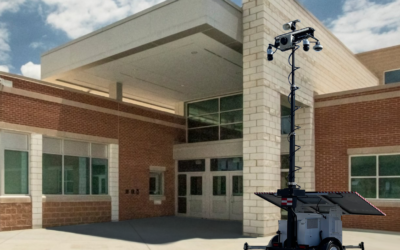The global physical security market is currently valued at USD 143.5 Billion. As data breaches, workplace violence, natural disasters, malware, and burglary continue to threaten businesses, many are investing more in their security budgets to mitigate risks.
However, many other organizations allocate insufficient budgets to their security initiatives, which creates vulnerabilities and can incur higher future expenses. Not adequately investing in security measures can lead to data loss, operational disruption, and reputational damage, which is why establishing a carefully planned security budget is vital.
Creating a security budget plan extends beyond just allocating funds to specific security measures. You must approach the process strategically to protect your personnel, data, and assets while maximizing your plan’s cost-effectiveness.
What to Do Before Planning Your Security Budget
Follow these key steps before you proceed with the security budget planning process:
1. Conduct a Risk Assessment
Assessing your organization’s current risks and developing situational awareness are the starting point for security budget allocation. You can identify potential risks and analyze their effect on business operations by conducting an in-depth risk assessment.
Factors such as your business’s size, location, and industry will determine which security risks are the most common and have the greatest impact. While some risks may only cause minor disruptions, others can result in considerable financial loss and damage.
This step will also help you find a suitable security services provider, as you can identify which options have the relevant experience and expertise to address your business’s unique threat landscape.
2. Prioritize Risks
You can strategically prioritize risks by assessing the damage caused by a particular security incident, such as a breach. Other factors you should consider before planning your security budget include:
- Your organization’s current ability to respond to or mitigate the risk
- The likelihood and frequency of the risk occurring
- The cost of implementing preventive measures as opposed to the cost of managing the security incident
- The potential regulatory and legal consequences of the risk
These additional considerations can lead to a more targeted and effective allocation of resources in your security budget. During this stage, you can begin categorizing high-impact and low-impact risks.
Focusing your security efforts on high-impact risks will result in greater ROI and will have a much more favorable outcome compared to spreading resources thinly across a multitude of lower-impact risks.
3. Evaluate Emerging Threats
Staying informed regarding new and evolving threats allows you to take the appropriate measures and future-proof your security approach. The threat landscape is constantly changing, and businesses must act accordingly to implement a security plan that anticipates and adjusts to new threats.
Similarly, adopting new technological advancements, such as IoT, AI, and cloud computing, can lead to new vulnerabilities that need to be addressed.
When businesses integrate and employ new systems into their operations, they may require new hardware or software updates, which could exceed their budget if not accounted for. Before allocating your funds, consider which technologies may require additional security measures or investments to adequately mitigate their associated risks
What to Consider When Planning Your Security Budget
After taking these steps, you can begin planning your security budget. This takes several considerations, as security budgets will play a critical role in the protection of your assets, data, employees, and overall operations. Key considerations include:
- Upfront costs: The installation of equipment alongside reverent staff training to operate or maintain newly implemented security measures often incurs initial expenses.
- On-going costs: Some security systems and equipment will need regular maintenance or upgrades to ensure they are operating at maximum efficiency.
- Lifecycles: Security equipment may become outdated, especially when threats evolve or new ones emerge. By budgeting for lifecycle costs, you can account for long-term expenses.
Preventive and Reactive Security Measures
When planning your budget, you must also consider which preventive and reactive security measures your business requires.
Preventive security measures are precautionary and aim to stop security incidents from occurring. Examples include:
- Security training programs for employees
- Access control systems to prevent unauthorized access
- Regular safety drills
- Deterrence measures such as 24/7 surveillance and patrols
Reactive security measures take effect after a security incident occurs and aim to minimize damage and restore normal business operations as soon as possible. Examples include:
- Alarm systems to notify law enforcement or on-site security personnel
- Incident response plans to address the consequential damage caused by an incident
- Security escorts to ensure safe evacuation of employees and visitors
- Pre-planned lockdown procedures
Your security budget should reflect a balanced approach to your business’s needs, incorporating both preventive and reactive security measures.
Building a Business Case
Finally, you must be prepared to develop a strong business case when planning your security budget. This includes:
- Creating an executive problem statement
- Outlining necessary actions
- Highlighting expected benefits
- Estimating cost
- Determining ROI
With a comprehensive business case, you can demonstrate the potential value of your proposed security budget plan and ensure support from stakeholders and decision-makers within your organization.
Questions to consider when planning security budgets
When planning your business’s security budget for 2024 and beyond, consider the answers to the following questions:
- What are the organization’s strategic objectives?
Understanding the organization’s short and long-term goals helps to ensure security initiatives align with business priorities.
- What are the most significant security risks facing the organization?
Identifying and prioritizing risks will streamline the resource allocation process and allow businesses to make the maximum impact without exceeding their budgets.
3. Which security incidents have previously affected the organization?
Reviewing past incidents helps to highlight vulnerabilities and identify weaknesses to employ targeted security solutions.
- How is your organization expected to grow in the forthcoming years?
Considering the possible expansion of your business’s scale and operations will help you effectively allocate resources and prioritize scalable security measures.
What Impacts a Security Budget?
A range of variables can impact a business security budget and influence its approach to prevalent security risks, including:
Threat Landscape
Physical and cyber threats continue to emerge and evolve. An increase in certain attacks, such as phishing scams, zero-day malware, and AI cyber-physical attacks, can impact the precautions and security measures businesses must take.
Business Size
Larger business facilities may need to budget for additional equipment, such as surveillance cameras, to monitor every area on their premises. With an increased area to protect, businesses may need to invest in additional expenses such as staff training and personnel recruitment to manage implemented security systems effectively.
Organizational Growth
As a business grows, its security priorities may shift, requiring additional expenses to scale with the expansion. The construction of new offices, operational expansions, or an increased workforce will require more security considerations. Businesses may need to implement new physical measures or upgrade their IT infrastructure, among other adjustments.
Regulatory Compliance
A shift in privacy and data protection laws in the US may alter how businesses approach their security strategies. This can impact budgets as businesses may need to invest in legal consultation costs to ensure their security measures align with updated regulations.
Competitive Landscape
Other businesses that choose to integrate new security measures will raise the bar within an industry and push similar companies to employ their own measures. Investing in new security solutions alongside similar companies will allow a business to maintain its competitiveness and secure a positive brand reputation.
Choosing the Right Security Provider When Planning a Security Budget
Partnering with a high-quality security service provider will allow you to make the most of your budgetary constraints while still benefiting from effective solutions.
An optimal security provider will hire expertly trained professionals, employ innovative solutions, and provide ongoing client support. When choosing a security service to partner with, consider the range of services they provide.
For instance, deterrence measures such as surveillance equipment, 24/7 patrols, and drone security are impactful preventative strategies that can cut business costs since preventing security incidents is often more cost-effective than managing them.
This can establish a cycle in which reducing costs through security systems frees up additional funds to invest further in preventative or reactive measures.
Establish a Scalable Security Budget With Confidence
Security budgets require careful planning and foresight. After assessing potential up-front and ongoing costs, considering preventative and reactive measures, and taking other factors into account, you can begin planning a security budget for your business.
At American Security Force, we’ll help you plan a flexible, scalable, and sustainable security budget while simplifying the entire process.
Contact us today to see how we can help you plan and deploy unified threat deterrence, detection, and management systems to protect your business.






